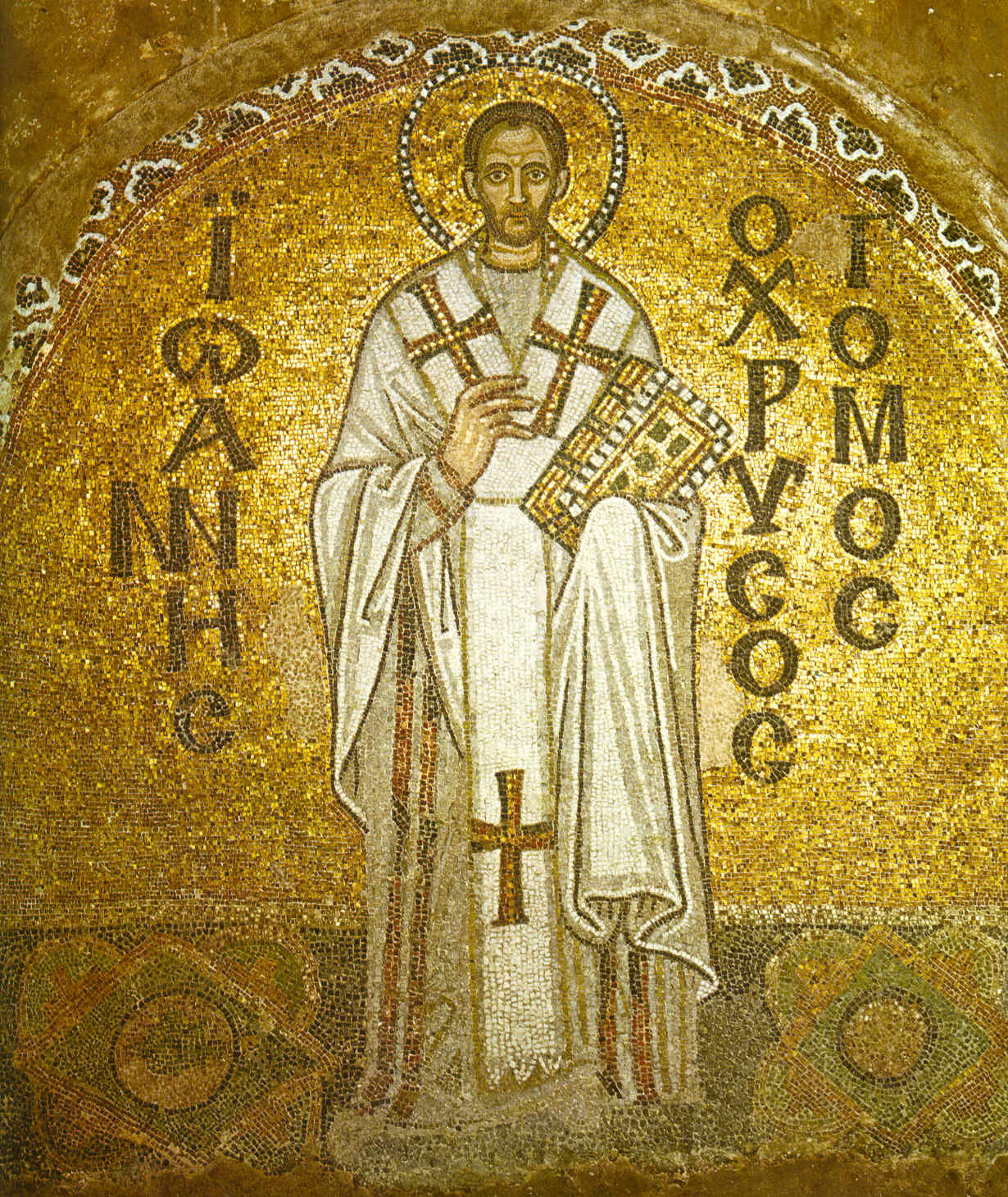St. John Chrysostom, Homily 24 on the Epistle to the Romans [PG 60:626-27] https://www.patheos.com/blogs/davearmstrong/2017/10/contraception-early-church-teaching-william-klimon.html
Juan Crisóstomo: Frases en inglés
“I do not think there are many among Bishops that will be saved, but many more that perish”
St. John Chrysostom, Homily III on Acts 1:12
Contexto: I do not think there are many among Bishops that will be saved, but many more that perish: and the reason is, that it is an affair that requires a great mind.
Homilies on the Gospel of Saint Matthew http://www.ccel.org/ccel/schaff/npnf110/Page_303.html, Homily L
Homilies on the Gospel of Saint John http://www.ccel.org/ccel/schaff/npnf114.iv.lxxxiii.html, Homily LXXXI
Homily on Romans IV http://www.newadvent.org/fathers/210204.htm
On the Priesthood http://www.ccel.org/ccel/schaff/npnf109/Page_41.html, Book II
Homilies on the Statues http://www.ccel.org/ccel/schaff/npnf109/Page_474.html, Homily XX
Homilies on the Statues http://www.ccel.org/ccel/schaff/npnf109/Page_476.html, Homily XX
Homilies on the Gospel of Saint John http://www.ccel.org/ccel/schaff/npnf114.iv.xxiii.html, Homily XXI
Paschal Homily
Luke 19:27
Eight Homilies Against the Jews http://www.fordham.edu/halsall/source/chrysostom-jews6.html, Homily 1
Homilies on Ephesians http://www.ccel.org/ccel/schaff/npnf113/Page_144.html, Homily XX
Paschal Homily
Saint John Chrysostom (349–ca. 407), Eight Homilies Against the Jews http://www.fordham.edu/halsall/source/chrysostom-jews6.html, Homily 1
Homilies on the Statues http://www.ccel.org/ccel/schaff/npnf109/Page_456.html, Homily XVII
Paschal Homily
Both English Wikipedia and English Wikisource contain the whole text of this homily. In Byzantine Rite churches, the whole homily is read out annually as part of Paschal Matins service.
Homilies on Timothy http://www.ccel.org/ccel/schaff/npnf113/Page_429.html, Homily VII
Reported in Josiah Hotchkiss Gilbert, Dictionary of Burning Words of Brilliant Writers (1895), p. 98
Homilies on the Gospel of Saint John http://www.newadvent.org/fathers/240103.htm, Homily III
Homilies on the Statues http://www.ccel.org/ccel/schaff/npnf109/Page_472.html, Homily XX
Epist. i. ad Tim., 12, as cited in Francesco Saverio Nitti, Catholic Socialism (1895), p. 67
“Nothing is so apt to draw men under teaching, as to love, and be loved.”
Homily 6 on First Timothy https://www.newadvent.org/fathers/230606.htm
